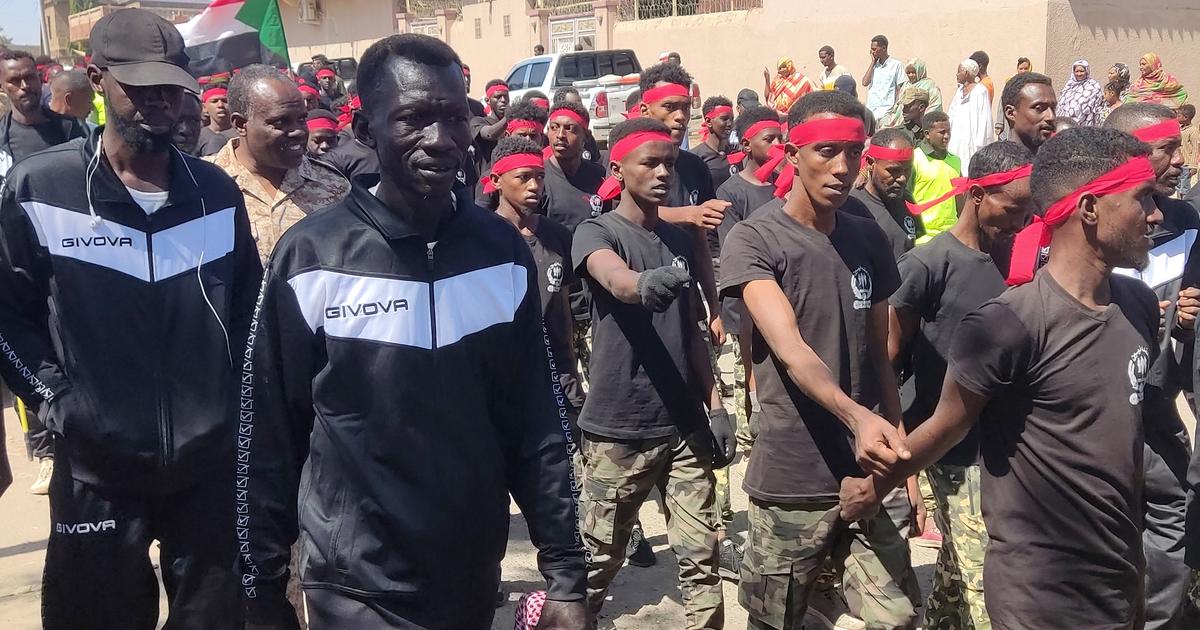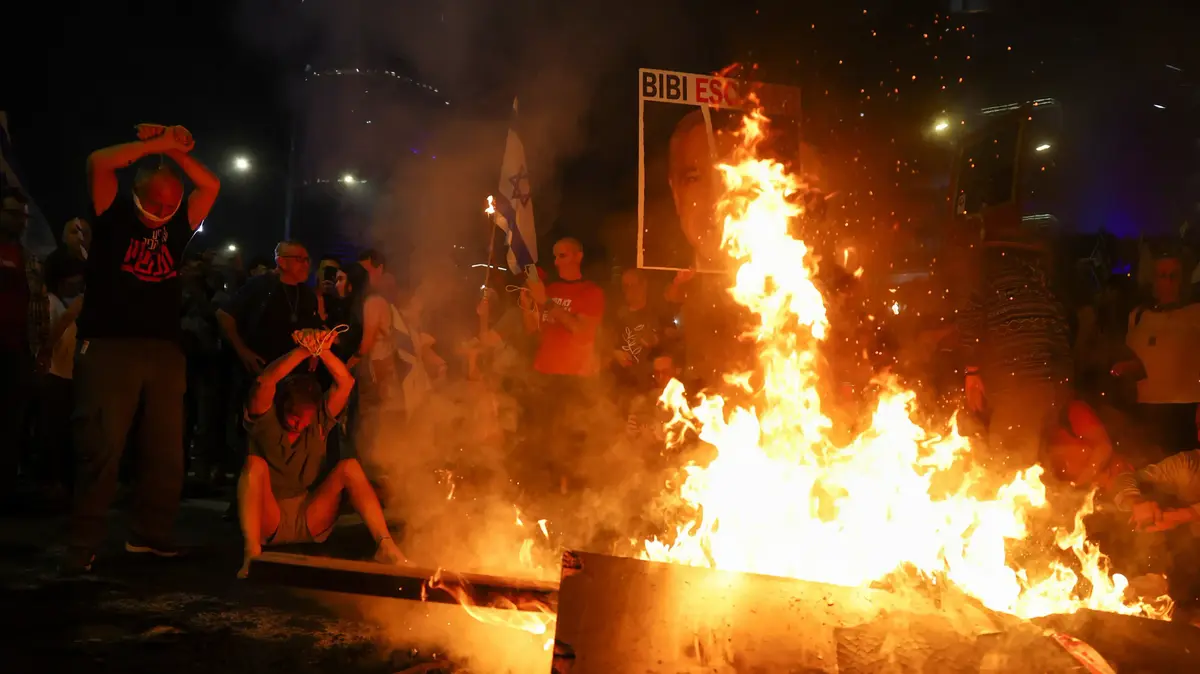- Click to share on Facebook (Opens in a new window)
- Click to share on Twitter (Opens in a new window)
- Click here to share on LinkedIn (Opens in a new window)
- Click to email a friend (Opens in a new window)
(CNN Spanish) - What began as a protest over the increase in the subway ticket, ended in a serious day of public order excesses in the Chilean capital, with the Chilean army declaring a curfew in the capital, Santiago, state emergency in several regions, and several killed by clashes.
This is what happened in Chile.
Firefighters put out a burning bus in Santiago protests on Friday, October 18, 2019
1. The beginning of the protests
Since last Monday, Santiago residents began mass demonstrations on account of the increase in the subway ticket by about 30 pesos, which left the maximum price of the ticket at approximately $ 1.19.
The increase for the rise in the ticket, according to experts, came under the argument of the rise in the price of the dollar and oil. Protesters rejected an increase in the subway ticket while the minimum wage remains at about $ 420, so monthly would involve a cost of $ 47 in transportation alone.
However, after five days of demonstrations in the Chilean capital, on Friday the protests became violent and some protesters began to confront the police, destroyed public infrastructure and many were injured.
- Chile dawns trying to return to normal under a curfew
2. Declare Emergency status and curfew
During the last week, thousands of people have taken to the streets of Santiago and surrounding cities, with vandalism in some metro stations and even an electric company was burned down.
The strong demonstrations, which for the weekend worsened and became violent, left a chaotic image in the Chilean capital: barricades in the streets, burned buildings, more clashes with the police and destroyed Metro stations.
Therefore, on Friday night, President Sebastián Piñera declared a state of Emergency for Santiago and Chacabuco and other communes in the Santiago metropolitan region, with which the Government reserves the power to restrict or suspend the exercise of some citizens' rights under of national defense or security.
Later on Saturday, Piñera announced that he would withdraw the increase in the subway ticket, and simultaneously General Javier Iturriago del Campo decreed a curfew for Santiago, Chacabuco, Puente Alto and San Bernardo and Valparaíso.
For the first time in almost 30 years, the armed forces mobilized in the streets, Reuters reported.
On Sunday, Piñera extended the state of emergency to five regions and a new curfew was established.
Police detain a protester dunrate a protest in Santiago, Chile, on October 19.
3. 11 dead in demonstrations
By Monday, 11 dead had been registered in the protests.
On Sunday, the mayor of the metropolitan region of Chile, Karla Rubilar, said in a press conference that since the beginning of the protests there had been the death of 10 people in relation to these events. Of those 8 people died Sunday. Many of the deaths occurred during the looting when the several supermarkets were on fire.
This Monday morning the death toll rose to 11.
Rubilar also announced the closure of public and private schools and colleges this Monday in the metropolitan area.
4. Hundreds arrested and "a powerful enemy"
On Saturday, in the port city of Valparaíso, the offices of the country's oldest newspaper, El Mercurio, were set on fire, Reuters reported, while the Army confirmed that it shot and wounded two people while chasing looters.
"This is what is being lived in Chile for every day since the rise in the passage was announced, this is the discontent of the people," Catalina Magaña, spokeswoman for the Chilean Confederation of Students of Chile, told CNN in Spanish (Confech)
“They are years of repression, they are years of living in misery, they are years when the Government imposes measures at the expense of the people and when one goes out to the streets to demand their rights, to demand a dignified life, they put the repressive forces” he added.
“The illusion of the Chilean model is over. Low salaries, lack of medical care and poor pensions have tired people, ”Karina Sepulveda, an anthropology student protesting in Santiago on Sunday, told Reuters.
Chilean Interior Minister Andrés Chadwick said Sunday that 103 “serious events” have been registered in the country and that more than 700 people have been arrested in the last hours.
In total Chadwick spoke of 716 detainees and "passed to the Prosecutor's Office" and 244 detainees for violating the curfew.
Speaking about the protesters, President Piñera said Sunday that the country is "at war".
"We are at war against a powerful and relentless enemy who does not respect anything or anyone and who is willing to use violence without any limit even when it means the loss of human lives, with the sole purpose of producing the greatest possible damage."
But this Monday, General Javier Iturriaga got rid of Piñera and said he said he is not at war with anyone.
"The country dawned in calm, in peace, which we have of course very calm and very alert to solve any inconvenience that could cause some desacatado."
Michelle Bachelet, United Nations High Commissioner for Human Rights and twice president of Chile, urged the government on Monday to work with "all sectors of society to find a solution" that "addresses the complaints of the population."
"I also urge all those who plan to participate in protests later today and move on, to do so peacefully," he said in a statement Monday.
"There must be an open and sincere dialogue by all the actors involved to help solve this situation, including a thorough examination of the wide range of socio-economic problems underlying the current crisis," Bachelet added.
5. Flights affected
The Chilean airline LATAM Airlines said in a statement on Monday that 200 flights had been canceled between Sunday and Monday morning, local time, affecting national and international flights.
The company offered a link to reschedule flights canceled on October 20 and 21.
📢 # AtentosPasajeros: We continue working to minimize the impact of the situation on the operation. If your flight is canceled please do not go to the airport and reschedule here https://t.co/B3xxoWXwKi
- LATAM Chile (@LATAM_CHI) October 21, 2019
Meanwhile the Santiago Arturo Merino Benítez International Airport communicated through its Twitter account that it is assisting passengers stranded in the air terminal with water, food and blankets. To access the Santiago airport, passengers and taxi drivers must previously request “safe-conduct in the police stations” of the Chilean Police.





/cloudfront-eu-central-1.images.arcpublishing.com/prisa/DAXPXX7XEC2R2VNNOX5XEX4T2U.jpg)

/cloudfront-eu-central-1.images.arcpublishing.com/prisa/E3I6SSZZQ6W6BXIAXV5VG36JCY.jpg)

